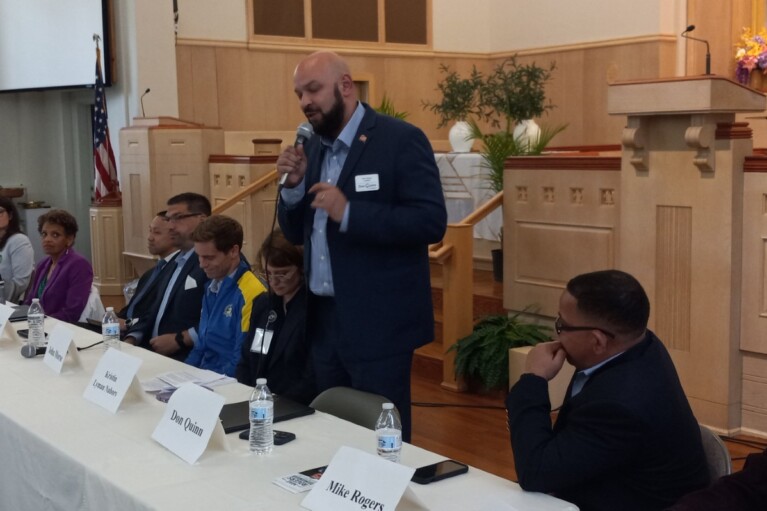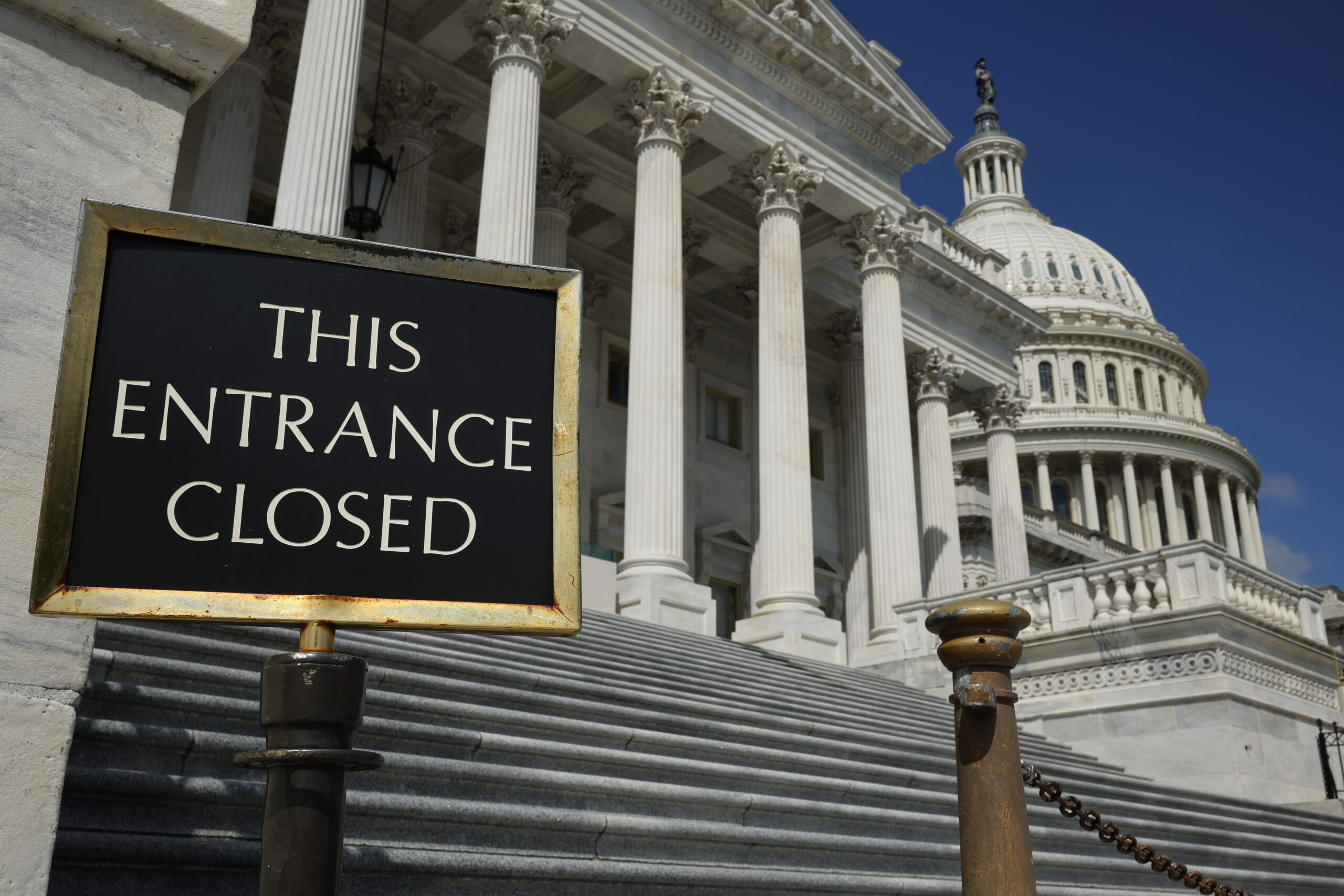Andy Harris: Odd Man Out?

When Maryland’s delegation to the U.S. Congress gets together, Rep. Andrew P. Harris might feel like an outcast.
Harris, whose 1st District encompasses Maryland’s Eastern Shore and communities across the Chesapeake Bay, is the lone Republican member of the 10-person delegation now representing the blue state, where Democrats hold a 2-to-1 registration advantage over Republicans.
It’s been that way since 2013, when state Democrats drew new district maps that helped to oust longtime 6th District Republican Rep. Roscoe G. Bartlett. Now, Harris and the makeup of Maryland’s congressional delegation are the subject of renewed interest as the U.S. Supreme Court weighs whether the courts can throw out Democrats’ redistricting map on the grounds that it’s excessively partisan.
Harris “might not be alone for long,” said Nathan Gonzales, editor and publisher of the newsletter Inside Elections, depending on how the court’s decision shakes out.
As a member of the conservative House Freedom Caucus, Harris is frequently at odds with Democrats. He sometimes ruffles feathers within his own party, too. In 2008, he defeated then-Republican Rep. Wayne T. Gilchrest in the 1st District primary, but lost to Democrat Frank Katovil. Harris ran again in 2010 and won in the tea party wave that swept Republicans into office and shifted House control to the GOP.
In the last Congress, Harris was the 45th most conservative member of the House, out of 438 representatives and delegates scored, according to the website GovTrack.us.
Rep. John P. Sarbanes, a Democrat who represents the 3rd District, appeared somewhat hard pressed to name areas of collaboration with Harris.
“We have tried to work together on some of the Chesapeake Bay stuff,” Sarbanes told Maryland Matters in a recent interview. Even there, they don’t always see eye-to-eye, Sarbanes added. “Not always, but it can be an issue that brings us together.”
The Democratic congressman also pointed to Maryland lawmakers’ efforts to secure more H-2B visas for seafood workers on the Eastern Shore.
“That’s something the delegation has been pretty united on,” Sarbanes said. “So there are clearly differences, but I think for those hyper-local things that we’re all sensitive to, in terms of Maryland, those are opportunities.”
But on most issues, there’s a wide gulf between Harris and his Democratic colleagues.
Harris, who sits on the House Appropriations Committee, is in favor of President Trump’s national emergency declaration, a move to circumvent Congress to obtain billions of dollars for a wall along the southern U.S. border.
After both chambers of Congress passed a resolution that would have ended Trump’s resolution, Harris celebrated the House’s failure to override the president’s veto.
“While Speaker [Nancy] Pelosi and [New York Democratic Rep.] Alexandria Ocasio-Cortez choose to side with open borders and amnesty, I stand with the American people and with President Trump to secure our border by supporting his veto,” the congressman said in a statement.
Following Attorney General William Barr’s release last month of a summary of Special Counsel Robert Mueller’s report on 2016 Russian meddling in the U.S. election, Harris wrote on Twitter: “No collusion, no obstruction. Let’s move on. What a waste of $25 million.”
Harris also famously infuriated critics back in 2014 after he attached an amendment to a House budget bill to overturn Washington, D.C.’s marijuana decriminalization law. The move prompted a boycott of his district’s popular vacation destinations.
Gilchrest, who lost to Harris in the 2008 primary, said it’s more than policy differences that divide Harris and his Democratic colleagues.
“He has his little tribe that he travels around with and he’s condescending to the Maryland delegation,” Gilchrest said in an interview.
Harris’ office did not respond to a request for an interview.
Gilchrest was never the only Republican in the delegation during his congressional career spanning from 1991 until 2009, but he was in the minority.
The delegation would meet monthly in Democratic Rep. Steny H. Hoyer’s office, Gilchrest recalled, and they would look for common ground on everything from highway funding to mass transit and agricultural policy.
“There was zero political animus. We all got in that room and we talked about what we could do for Maryland,” Gilchrest said.
Former Maryland Gov. Robert L. Ehrlich Jr. served as a Republican congressman in the late 1990s and early 2000s, when the House delegation was evenly split 4-4 between parties.
“We were in the majority and I had a safe seat. I was the happiest kid in the world,” Ehrlich said.
He pointed to issues like the realignment and closure of military installations, transportation and Chesapeake Bay issues “where the party labels came off real fast.”
As for Harris, Ehrlich said he has “plenty of friends” on Capitol Hill, even if they’re not from his home state. “My best friends were from other states,” including some of his Republican classmates, Ehrlich said of his time on Capitol Hill.
Some Maryland Republicans are happy to have at least one member of their party representing their state in Congress.
“I think generally Republicans have a positive opinion of him,” said Jim Burton, a longtime Maryland GOP political consultant. “He represents the Republican line there and the conservative line.”
Because he’s the lone Maryland Republican in the federal delegation, “I think [state Republicans] look to see, ‘Hey we’ve only got one out of eight, I’m glad this person is doing the right thing.’”
Burton thinks it’s a shame that Republicans have been squeezed out of the delegation in Washington. “I think it’s unfortunate and we read why this has happened. We read what the Democrats have done because it’s come out in the [gerrymandering] court case.”
Democrats “packed all the Republicans” into one district, Ehrlich said. But he said he’s torn over whether the courts should get involved.
“Seven to one is what it is, it’s gerrymandering. On the other hand, do you want judges with pens … drawing lines?”
Did someone forward this to you?
Get your own daily morning news roundup in your inbox. Free. Sign up here.



 Creative Commons Attribution
Creative Commons Attribution